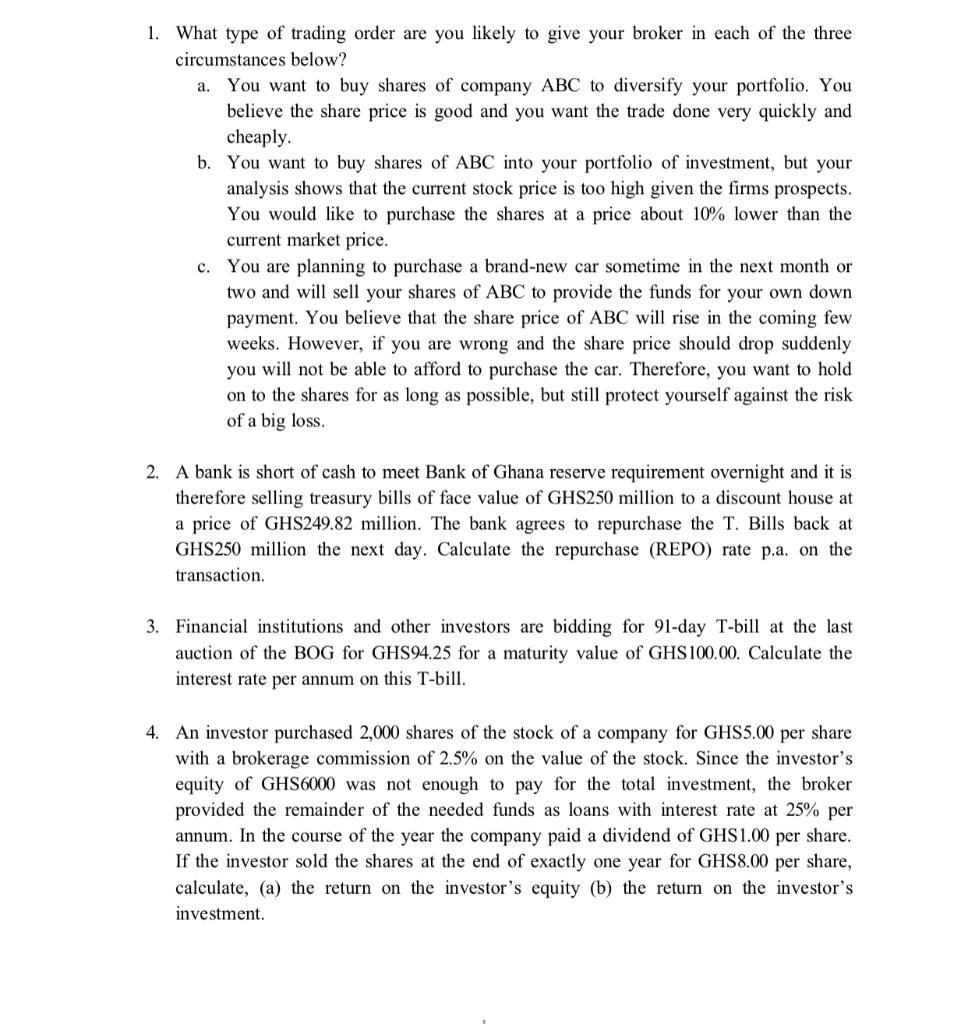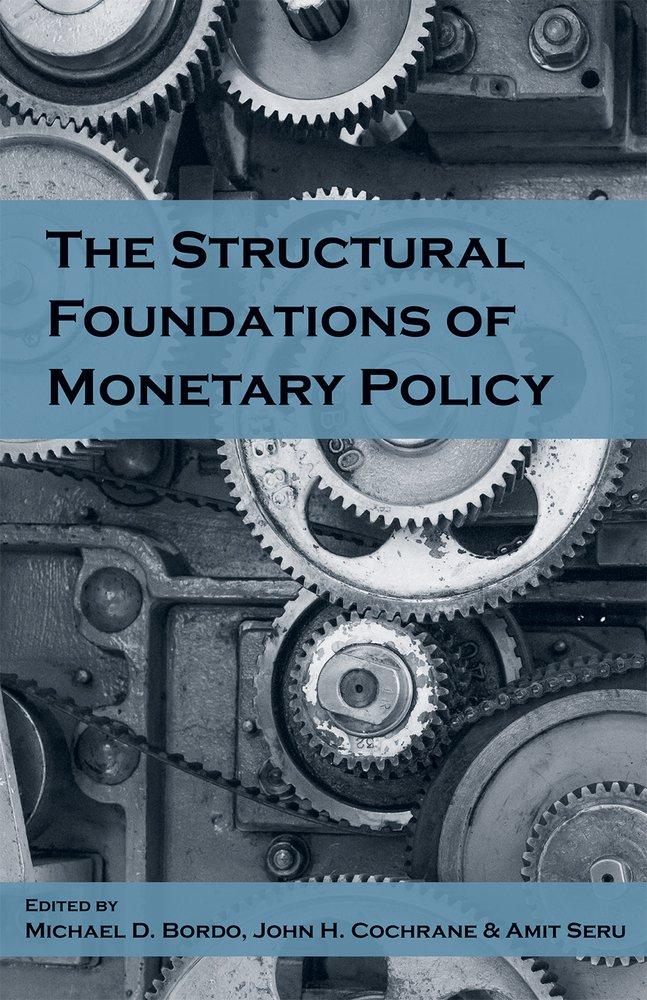
1. What type of trading order are you likely to give your broker in each of the three circumstances below? a. You want to buy shares of company ABC to diversify your portfolio. You believe the share price is good and you want the trade done very quickly and cheaply. b. You want to buy shares of ABC into your portfolio of investment, but your analysis shows that the current stock price is too high given the firms prospects. You would like to purchase the shares at a price about 10% lower than the current market price. c. You are planning to purchase a brand-new car sometime in the next month or two and will sell your shares of ABC to provide the funds for your own down payment. You believe that the share price of ABC will rise in the coming few weeks. However, if you are wrong and the share price should drop suddenly you will not be able to afford to purchase the car. Therefore, you want to hold on to the shares for as long as possible, but still protect yourself against the risk of a big loss. 2. A bank is short of cash to meet Bank of Ghana reserve requirement overnight and it is therefore selling treasury bills of face value of GHS250 million to a discount house at a price of GHS249.82 million. The bank agrees to repurchase the T. Bills back at GHS250 million the next day. Calculate the repurchase (REPO) rate p.a. on the transaction. 3. Financial institutions and other investors are bidding for 91-day T-bill at the last auction of the BOG for GHS94.25 for a maturity value of GHS100.00. Calculate the interest rate per annum on this T-bill. 4. An investor purchased 2,000 shares of the stock of a company for GHS5.00 per share with a brokerage commission of 2.5% on the value of the stock. Since the investor's equity of GHS6000 was not enough to pay for the total investment, the broker provided the remainder of the needed funds as loans with interest rate at 25% per annum. In the course of the year the company paid a dividend of GHS1.00 per share. If the investor sold the shares at the end of exactly one year for GHS8.00 per share, calculate, (a) the return on the investor's equity (b) the return on the investor's investment







